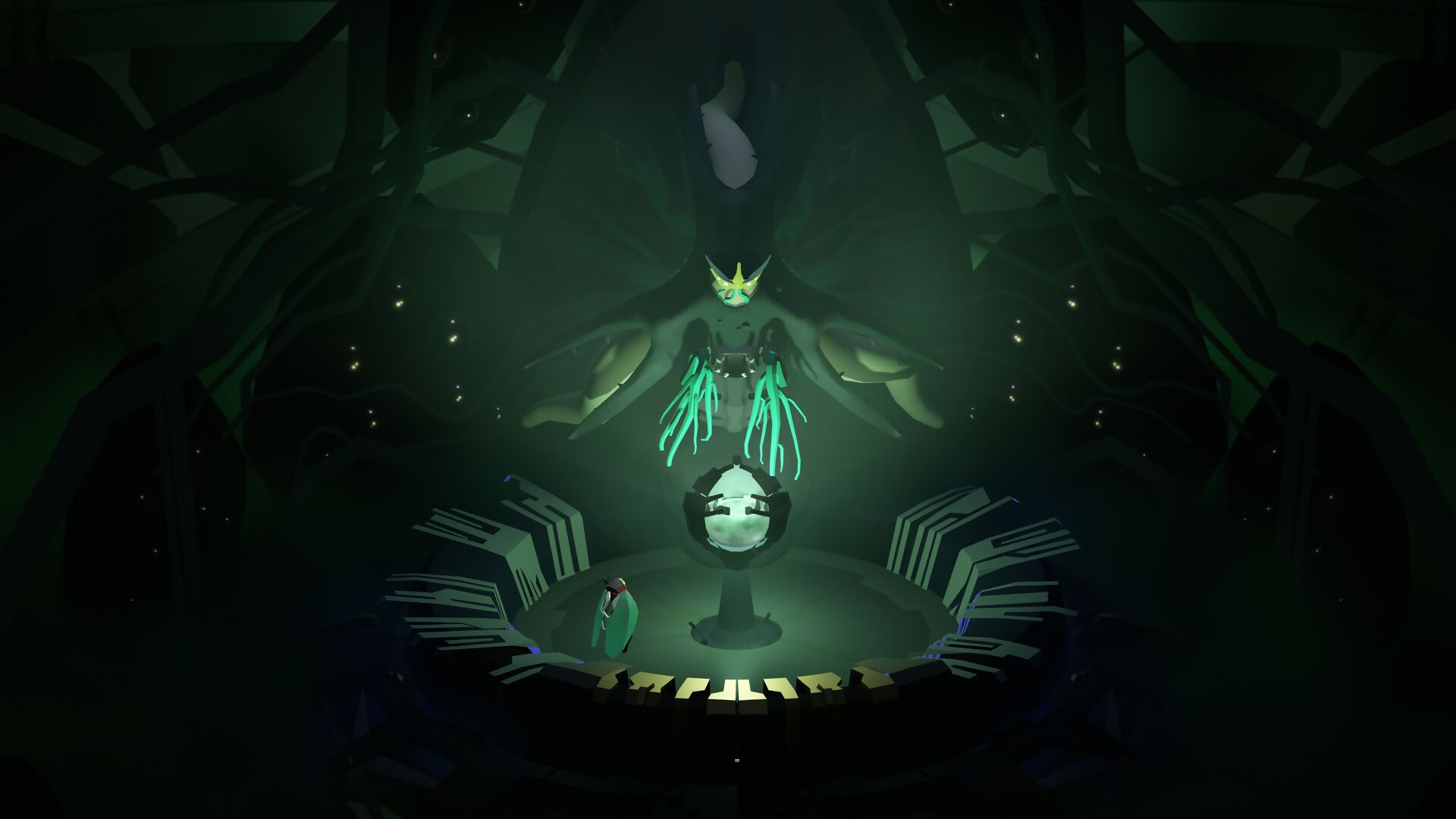
Surprise is a rare yet vital component in video games, Jon Bailes writes, and encourages us to look at real and imagined worlds in a new light.
Recent critical indie hit Cocoon is rightly lauded for its puzzles involving whole worlds nesting in other worlds. Jump ‘out’ of a planet and you emerge in another, the previous location now a large crystal ball that you can pick up and carry, then use to power contraptions in your new surroundings. It’s a brilliant concept that Cocoon explores iteratively with great skill, shifting and rewriting its rules as it goes.
What really makes Cocoon sing for me, however, is the way it frames its puzzle pieces not as switches, levers, circuits, barriers, platforms as so on – which at base they are – but as organic parts of beguilingly surreal environments. Yes, there’s a layer of the Earthly familiarity in these worlds – an orange desert canyon, a green swamp – but it’s always mixed with the alien and the weird, so you never know what’s coming next. I won’t attempt to describe the strange sights, sounds and feel of Cocoon here, because words could barely do them justice. But also because I think it would be an injustice to try, since much of their power is in the element of surprise.
And if there’s one quality I cherish in games above all else, it’s surprise. Beyond favoured genres, immaculately balanced systems, stylish visuals, or any of the marvellous mechanical bits and pieces in games, surprise is the ephemeral substance that underlines their limitless creative possibilities. More specifically, I don’t mean the kind of cheap plot twist or jump scare that anyone can artlessly toss into an experience, but sparks of inspiration that dissolve boundaries, leaving you unsure where you might end up.
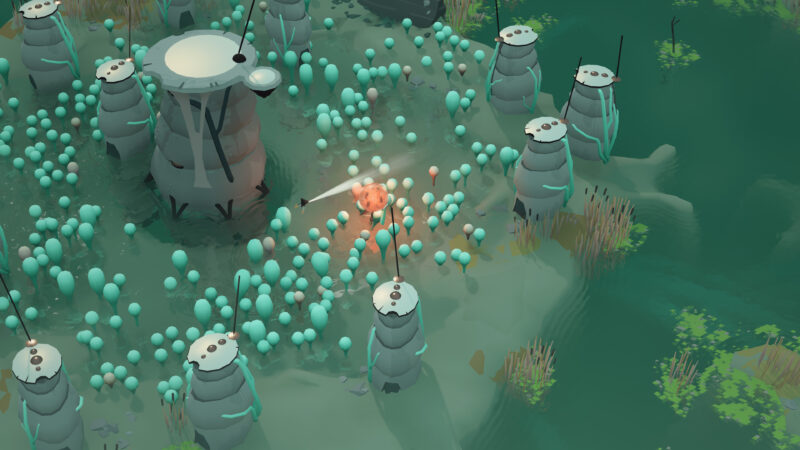
Read more: Cocoon review | An orb-inspiring puzzler
Last year’s two great gaming achievements, Immortality and Elden Ring, are perfect cases in point here. Without giving away any details, Immortality is built around the idea of peeling back layers, steadily revealing that the rabbit hole goes deeper than you could have realised, in ways you could never have guessed. In the process, your imagined relationship with the game’s designers changes, as you comprehend that their thinking is denser and more daring than they first let on, and you cling on for the rest of the journey with no notion of the destination, trusting they know what they’re doing. (They do.)
As for Elden Ring, for the initiated it surely suffices to mention the name Siofra River Well. For the uninitiated, well, that’s the name of a nondescript elevator platform tucked away inside a crumbling domed building in a forest, which most assume will take you them down to another of the catacomb or cave dungeons that litter the land. Instead, it descends for around a whole minute, through a vertical tunnel that gives little away except that you’re going deeper underground than you could have conceived. Then once you emerge and soak in the stunning open vista in front of you, everything you know about the world has changed.
Such sequences excite and delight in a way that many games, even solidly constructed ones, fail to manage. They lay out their intricately designed systems, generate pleasure from speed and spectacle, but rarely if ever force you to rethink what you’ve learned. Atlas Fallen is one recent example that comes to mind – although plenty of other games would fit the bill. Its traversal and combat systems can be exhilarating, but the initial experience remains largely static for the rest of the game. It’s hard to recall a real surprise among the locations or enemies or the ways you interact with them.
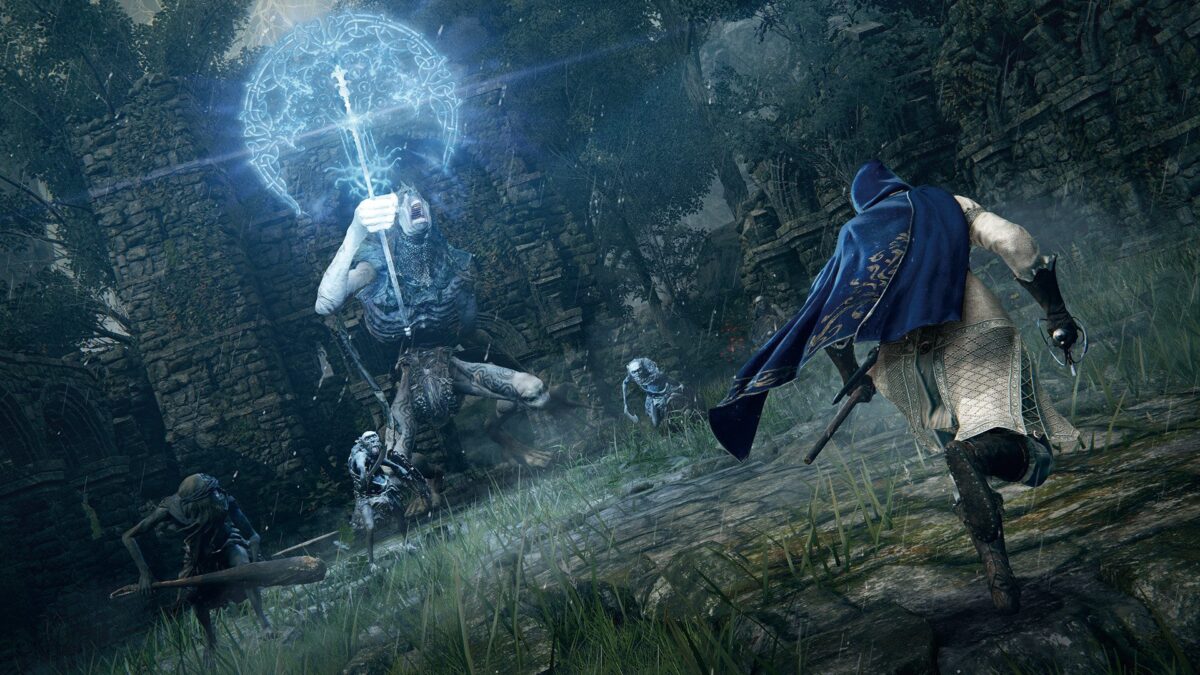
Read more: Elden Ring review | Towering achievement
As I say, plenty of games get stuck in such grooves. Even FromSoftware itself, I believe, hasn’t consistently maintained the standards of surprise it established in Demon’s Souls and Dark Souls, not least when it comes to boss battles. Increasingly, more recent releases set boss encounters in large empty rooms or flat expanses, in contrast to those older games (take the Capra Demon in Dark Souls, for instance, which upends the unspoken rules by shoving you into a cramped space). Meanwhile, bosses that have a ‘surprise’ second form have become such a From staple since the wicked twist in Dark Souls’ Smough and Ornstein fight, I can now only react with an eye roll.
You might say this development is merely a matter of taste – some people prefer From bosses to be straight, toe-to-toe scuffles and relish multiple phases – but I think that judgement undervalues the power of surprise, which goes beyond merely catching us unawares. In works of entertainment and art, the unexpected has a long and illustrious history.
Indeed, it is arguably a crucial component of what makes art, more than mere craftsmanship, a means of challenging our conceptions of reality. Painters manage such feats through choices of style, composition, subject matter and obscure detail. Games have equivalent tools of their own, adding layers of depth – narrative, mechanical, geographical – you can’t immediately perceive.

Read more: Immortality review | An unforgettable, thought-provoking edit-’em-up
Such methods are surely essential in an industry where triple-A games are often criticised for playing safe, sticking to genre norms, refusing to take risks that might alienate them from the largest audience. Of course, these are economic decisions, but they are also decisions made by the biggest, wealthiest publishers who benefit most from the status quo, who have least to gain and most to lose from fresh perspectives.
Thus, they offer us fantasy realms to explore, but realms that function in familiar ways, following the rhythms of dominant ideologies or scores of games that have come before them.
The importance of subverting these limitations goes further than staving off boredom, and never more so than in a time of social crises like today, where the political class across the board is bereft of imagination and creativity, offering answers in the form of tried and tested formulae that don’t inspire and won’t fix the issues we face. In such circumstances, anything that helps people to shake up their thinking and expectations is worth savouring. If we get enough of it, who knows what we might believe is possible? We may even surprise ourselves.
Read more: Immortality | Creators and stars discuss the game’s hidden secrets



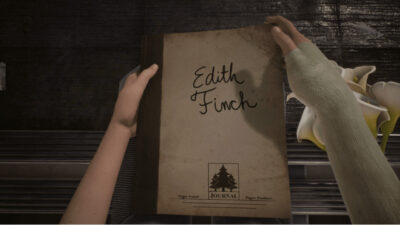
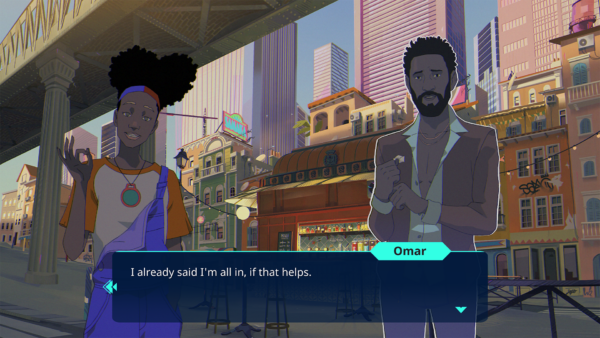
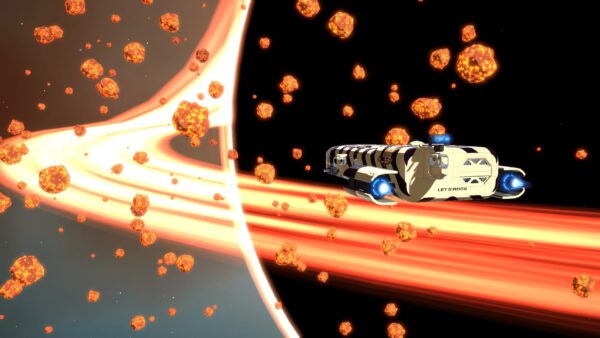
1 Comment
Enjoyed this! (and agree with the premise wholewholeheartedly)